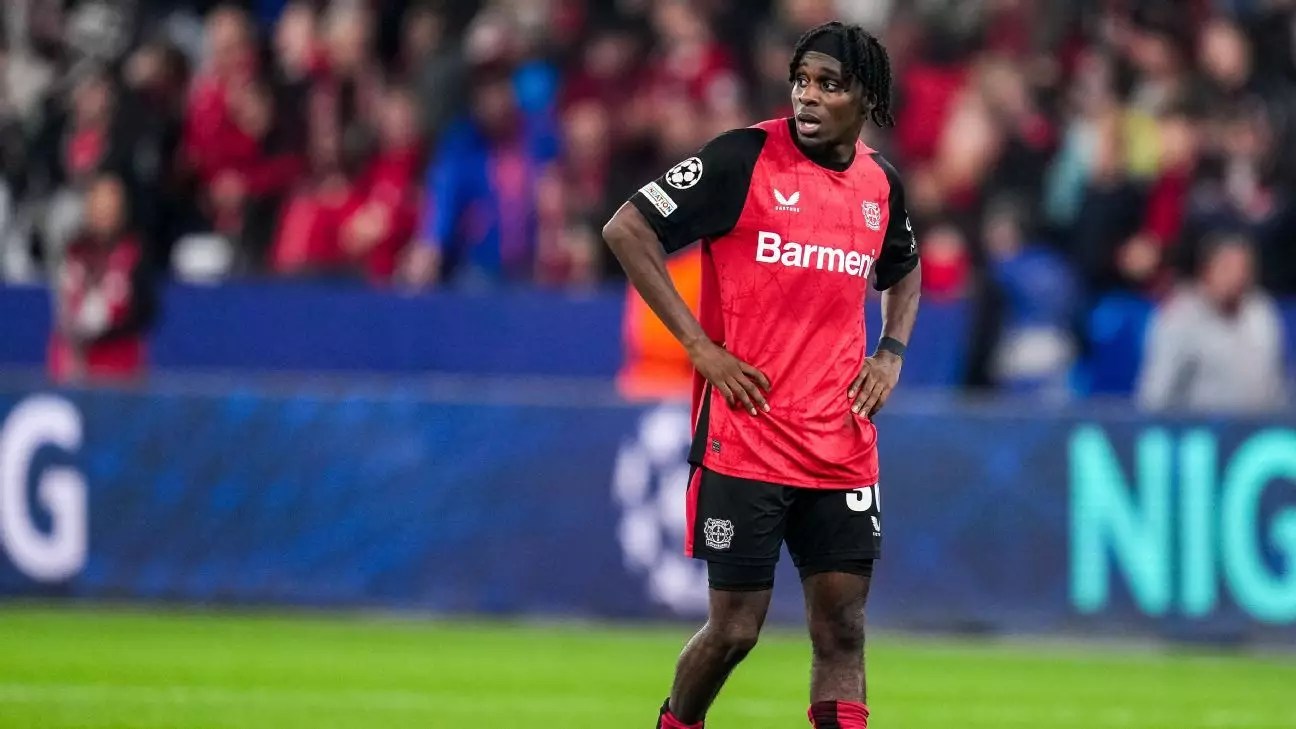The footballing landscape is often dotted with tales of resilience, triumph, and the crushing weight of expectation. Bayer Leverkusen, a club that once basked in the glow of an unbeaten season, now finds itself grappling with a stark contrast in fortunes. The transition from the euphoric heights of last season to the challenges faced in the current Bundesliga campaign raises questions about the team’s psyche, tactical stability, and overall resilience. This article unravels the layers behind Leverkusen’s struggles this season, exploring the factors contributing to their decline and the road ahead.
Last season, Bayer Leverkusen showcased an impressive unbeaten domestic campaign, characterized by a remarkable ability to score late goals and rely on mental fortitude. Nicknamed “Laterkusen” for their knack for clinching last-minute victories, they transformed into “Meisterkusen,” boasting their position as double winners. However, the shift has been jarring. Now, a new term has emerged—“Luckypunchgegentorkusen”—reflecting a disheartening trend of conceding late goals that cost them valuable points.
The most recent example was a match against VfL Bochum, where Leverkusen took an early lead but succumbed to a last-minute goal, resulting in a feeling of disappointment that could be felt on the bus ride home. The fragility they demonstrated contrasts sharply with last season’s unyielding dominance. Such setbacks have revealed vulnerabilities in a squad that, on paper, appeared stronger than its predecessor.
Dissecting the potential causes of this unraveling, several theories arise. Sporting CEO Simon Rolfes attributes the team’s struggles to a lack of killer instinct, suggesting that a few percentage points are missing across the board. This statement resonates with fans and analysts who have witnessed a stark dip in performance, especially when holding a lead. The term “glass-jaw factor,” referring to the team’s propensity to falter under pressure, is a fitting description of the current predicament.
Key players like Lukas Hradecky and Granit Xhaka have noted the challenges within the squad. Hradecky acknowledged his errors, particularly one during the Bochum match, while Xhaka pointed to communication breakdowns as sources of confusion on the pitch. Consistency is essential in football, and it appears that the squad’s inability to maintain focus and cohesion has opened up significant gaps for opponents to exploit.
Adding to the complexity is the reality of squad rotation and new signings failing to integrate effectively into the team’s dynamics. Despite boasting some impressive new talents—like Martin Terrier and Aleix García—their contributions have been underwhelming. García, for instance, has seen limited playing time and has struggled to adapt, particularly in key midfield roles. The absence of a strong backup for Xhaka has left the midfield vulnerable to counterattacks, a risky position for any aspiring title challengers.
This lack of depth raises alarms, especially as familiar names, including Edmond Tapsoba and Jeremie Frimpong, have seen marked declines in performance compared to last season. With Victor Boniface struggling to find his form, the reliance on Florian Wirtz as the primary playmaker grows overwhelming. While individual brilliance can spark moments of magic, football is ultimately a team sport where synergy is crucial.
As Bayer Leverkusen stands nine points adrift of Bayern Munich in the title race, the ambitious quest for silverware seems an uphill battle. The early stages of the UEFA Champions League have provided a glimpse of potential, with impressive performances against formidable teams like AC Milan. However, questions linger about their status as genuine contenders in the ongoing season.
Upcoming matchups, particularly a crucial DFB-Pokal tie against Bayern Munich, could serve as a vital turning point. Such knockout games often allow for unexpected outcomes, and Leverkusen must capitalize on any weaknesses in their opponents. Additionally, the looming encounter with Heidenheim presents another opportunity to shift the narrative. Failing to secure points against lower-ranked teams could further exacerbate their issues.
Bayer Leverkusen finds itself at a critical juncture, where errors from the past must inform lessons for the future. Whether it’s addressing internal communication gaps, ensuring new signings find their footing, or rediscovering the confidence that characterized their previous season, Leverkusen holds the keys to their redemption. As fans look on, the hope remains that this storied club can transform against the odds, reclaiming its status as a force to be reckoned with in German football.


Leave a Reply